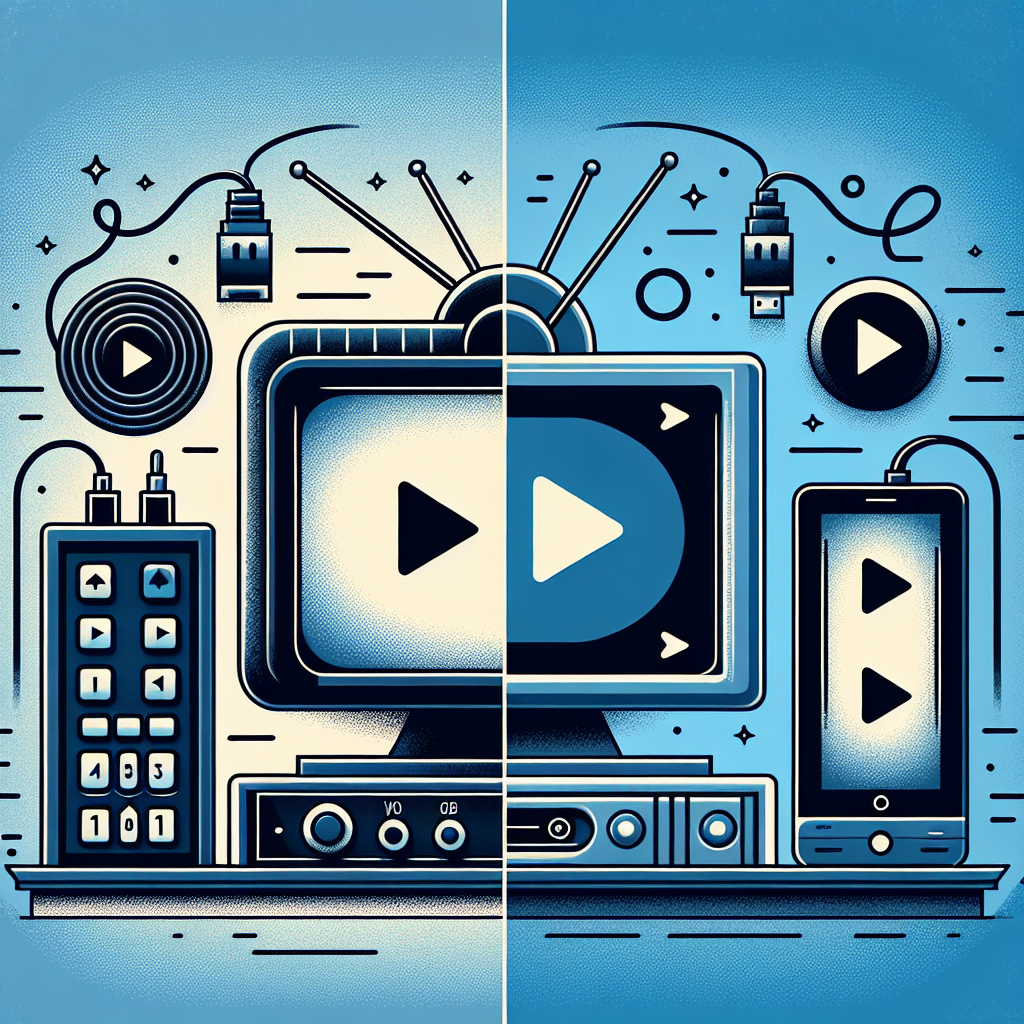Cable vs Streaming: Which One Suits Your Needs Better?
With the evolution of digital entertainment, audiences are now spoilt for choices. The traditional cable TV and modern streaming services offer distinct experiences. But which one is right for you? Let's dive into the intricacies of both options and see how they compare.
What is Cable TV?
Cable TV has been a staple in households for decades. It delivers television programming through a wired setup directly to your home. It's renowned for providing a vast array of channels and consistent service quality.
Benefits of Cable TV
- Extensive Channel Selection: Cable TV offers numerous channels covering various genres, from news and sports to entertainment and education.
- Reliable Service: Since it's not dependent on internet connectivity, you often get a stable and continuous connection.
- Bundled Packages: Many cable providers offer bundles, combining TV, internet, and phone services, which can be cost-effective.
Drawbacks of Cable TV
- High Costs: Subscription fees tend to be higher, especially with premium channel add-ons.
- Lack of Flexibility: Fixed schedules can be inconvenient for viewers with dynamic routines.
- Limited On-Demand Options: Although some cable services offer On-Demand content, the library often pales in comparison to streaming services.
What are Streaming Services?
Streaming services like Netflix, Hulu, and Amazon Prime have revolutionized how we consume content. These platforms deliver television shows, movies, documentaries, and exclusive originals directly to your device via the internet.
Benefits of Streaming Services
- Flexibility: Watch your favorite shows anytime, anywhere, as long as you have an internet connection.
- Cost-Effective: Subscription fees are generally lower compared to cable TV, and no long-term contracts are required.
- Personalized Content: Algorithms help to recommend shows and movies based on your viewing history.
Drawbacks of Streaming Services
- Internet Dependent: An unstable or slow internet connection can disrupt your viewing experience.
- Data Consumption: Streaming consumes a significant amount of data, which might be a concern for users with limited internet plans.
- Channel Limitations: Not all live events, like certain sports games, may be available on streaming platforms.
Conclusion: Choosing Between Cable and Streaming
Your ultimate choice between cable and streaming depends on your personal preferences, lifestyle, and budget. If you value a stable variety of channels and can afford higher costs, cable might be your best option. On the other hand, if flexibility and personalized content at a lower cost appeal to you, streaming services are worth considering. Evaluate your entertainment needs and pick the option that suits you best.

